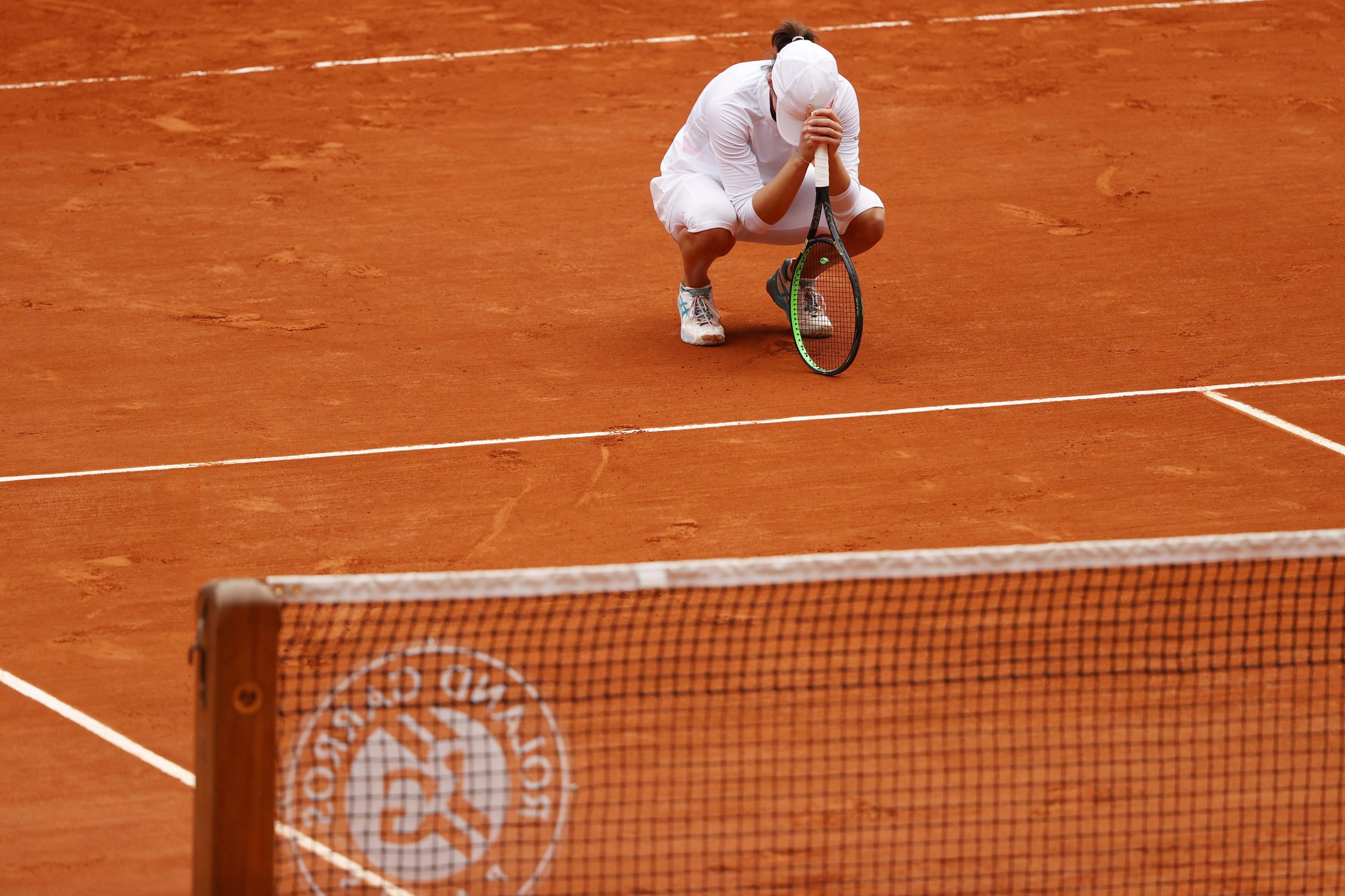This year's French Open was a tale of two rampages, one as inevitable as the other was unforeseen.
Anyone who's had a clay court on their TV screen for even a cumulative 60 seconds in the past decade knew that Rafael Nadal could glide through the men's draw for his 13th title at Roland Garros, and he did, mugging Novak Djokovic in the final. It was considerably less obvious that world No. 54 Iga Swiatek, a 19-year-old who had never beaten a top-10 player or won a tour-level title, might have an even easier time blitzing the women's draw. Nadal was as prohibitive a favorite as has ever existed in sports history; Swiatek was the lowest-ranked player to win the tournament in the history of the modern ranking system. One improved to a career 100-2 at the French Open, and the other improved to 10-1. Neither winner even dropped a set over their seven matches.
A full statistical breakdown of Swiatek's run reveals how comprehensively she wrecked all comers, including top seed Simona Halep, who was on a 13-match win streak until she ran into this teenager in the fourth round. Swiatek broke serve in a comical 70 percent of return games in this tournament, and no opponent held serve against her more than three times in a given match. She lost 28 games across the tournament, the second-lowest mark for any women's champ at the French Open since Steffi Graf's 20 games lost in 1988. Swiatek spent 8 hours and 24 minutes winning her singles matches over the fortnight. Can you confidently say that you've spent less time using your phone on the toilet in the same timeframe?
No opponent had even a minute to catch their breath, not even tournament runner-up Sofia Kenin, who won the Australian Open in (somehow) January of this year. The two played a tense, frequently dazzling first set before Swiatek ran away with the second.
With a young champ like Swiatek, the temptation is to look forward, to see if any of this is replicable, or just one of those random flare-ups of brilliance occasionally witnessed on the tour. I doubt she'll ever win a major as easily as this one—few people have—but I suspect that that Swiatek will be winning titles for a long time, because of her bag of skills leaves little to be desired. Much of it is on display even in the video above.
Swiatek has a killer return of serve, moves well and plays savvy defense. She has soft touch and can wrap up points at the net well enough to earn the sought-after designation of "all-court player." And off both sides, she hits with a huge amount of top spin, which causes the ball to kick high off the court. A forehand with a Western grip, which is more common on the men's tour, helps generate that spin. Some of her forehands even resemble those of her favorite player Nadal's, right down to the buggy-whip finish. Swiatek's spin could be a menace on the women's tour, where players are shorter and the hitting is typically much flatter. (Kenin specifically cited that "spinny forehand" as a challenge after the match.) Since spin causes the ball to move through the air along a more exaggerated arc, it lets Swiatek access some shots that are otherwise difficult to pull off. She can take her two-handed backhand up the line, over the highest part of the net, with a lot of margin for error, and she can sneak crosscourt forehands in at tough angles. It opens up more variety on the court than is available to a player who hews to samey flat shots.
The next cohort of top women has already taken shape in the top 10 rankings. Naomi Osaka has notched three majors in as many seasons, achieving a consistency that unusual for anyone not named Serena Williams. Bianca Andreescu, whose 2019 season was a revelation straight through her U.S. Open title, might be the most talented young player on tour, but hasn't stayed healthy enough to bear that out. Last season Ashleigh Barty won the French Open and the year-end finals, and this season Kenin won the Australian Open and already made it back to another major final. These players all look like they'll produce consistent results on a tour that could use a recurring cast of characters, as a bit of narrative scaffolding for anyone who tunes in four times a year. If this tournament was a representative sample of Iga Swiatek, who leaps up to No. 17 in the world this week, she'll be joining of all of them soon.





